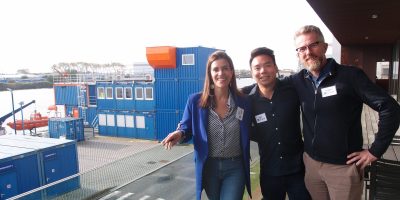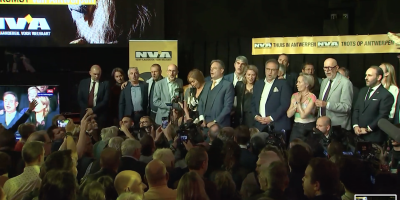
Following the elections, Flows put a few questions to some key players in the logistics world. Today, Peter Van de Putte (director of Maatschappij Linkerscheldeoever) gives his answers: “In the coming legislature, it will be important to give new concessions, due to the large number of demands for areas that we cannot meet today.”
In the run-up to the Flemish, federal and European elections on 9 June, Flows polled what priorities the maritime and logistics sector has for politics. In this post, Director of the Left Bank Corporation Peter Van de Putte indicates which dossiers made progress and which issues were put on the back burner …
For you, what is the most important dossier on the table for the period 2024-2028?
Peter Van de Putte: “As the Left Bank Corporation we are responsible for the economic development of the Waasland port. In the coming legislature, too, it will be important to be able to give new concessions, due to the large number of requests for land that we cannot meet today. For this, the implementation of a number of projects will be crucial: the development of the vacant residual land in the Waasland port, the start of works for the complex project Extra Container Capacity in the port of Antwerp and obtaining a GRUP for the last part of the Waasland Logistics Park.”
Which political breakthrough from the past legislature pleasantly surprised you?
“The signing on 20 April 2022 of the covenant for the future and livability of the Left Bank periphery. Minister Diependaele, together with some officials, found a compromise between action groups, nature and agriculture associations and port authorities, creating certainty for the further development of the port.”
In which file was there hardly any or no progress?
“Spatial projects and permit processes are getting longer and longer lead times. The complex ECA project should already have been implemented, but is running into a lot of delays. This is also the case for the western access of the Waaslandhaven to the E34.”
Are European policies sufficiently in harmony with local policies?
“European policy determines Belgian legislation and Flemish decrees in several areas. The European nature and environment legislation, which extends broadly to, for example, the nitrogen issue, has been a tremendous challenge for years and has a strict decretal translation in Flanders (and the Netherlands). The method of translation increasingly involves harming economic interests, which is not the case in a number of other member states. This has permeated the political elite today, including through the massive downturn in the petrochemical industry and the efforts of its sector federations. The EU may certainly bet on a ‘European Industrial Deal’.”
Are politicians sufficiently in touch with ports/logistics?
“I think so, especially in the run-up to the upcoming elections … VOKA’s internships or the efforts of port companies to bring politicians to the port are also fruitful. The feeling is there, but that is why the political will to let the ports excel as economic spearheads of Flanders and Belgium is not always there. In this, it becomes important to choose the right political parties and then ensure that coalition agreements give sufficient attention to sustainable port development. The increasingly stringent regulations must be rethought in function of this.”
Which politician has inspired you the most?
“It is a negative inspiration: Vladimir Putin. He makes me think about the sustainability of Western democracy in its current form, the (un)power of the European Union at the world forum and the future of European trade. It is time we all paid more attention to the European institutions. The next legislature, I think, will be especially crucial at this European level, where a two-speed EU remains an interesting train of thought.”




